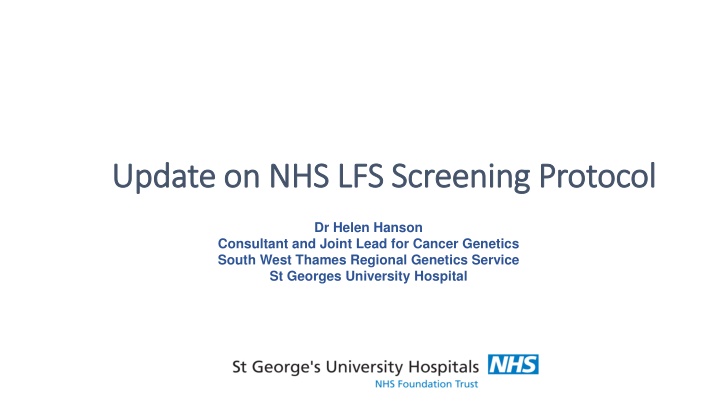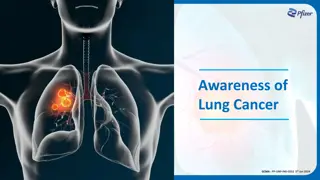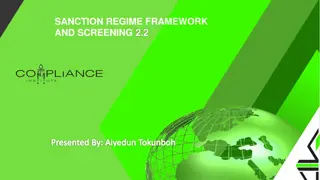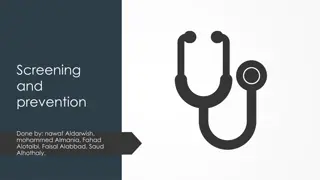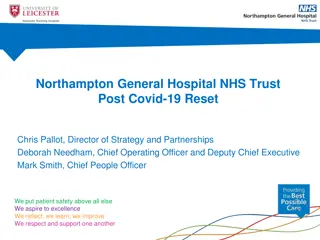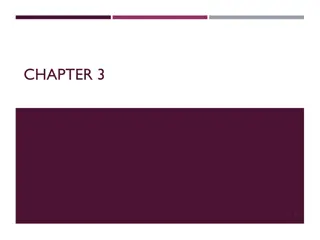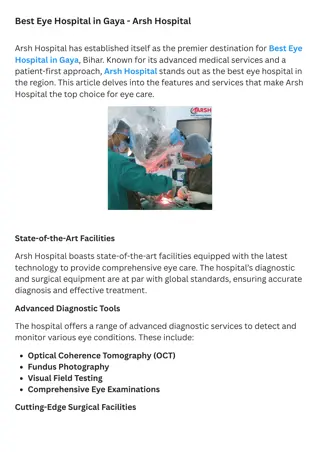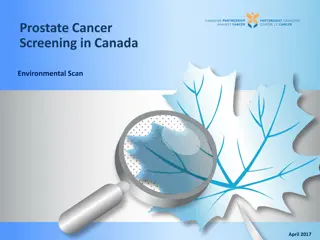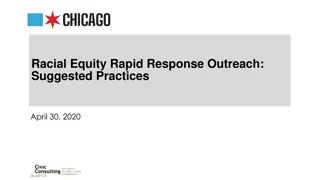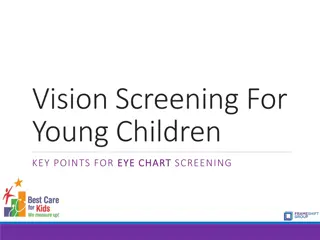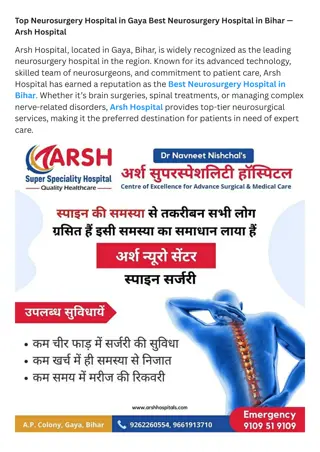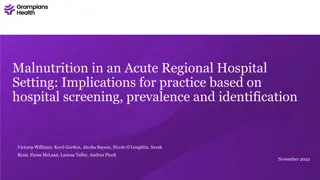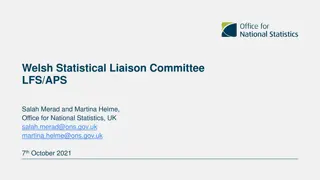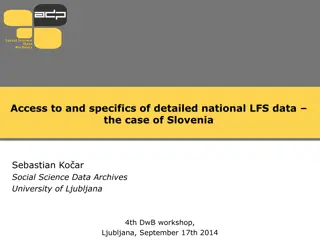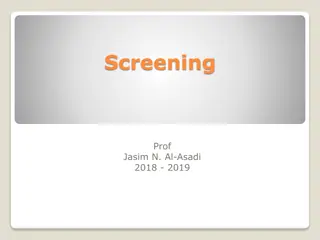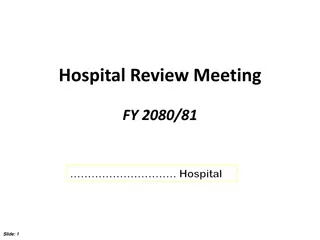Update on NHS LFS Screening Protocol by Dr. Helen Hanson at St. George's University Hospital
Screening recommendations for individuals with Li-Fraumeni Syndrome (LFS) with a predisposition to multiple cancers are being updated following a UK Consensus Meeting in July 2018. The consensus group recommends specific tumour screening protocols for various age groups, including abdominal ultrasound, breast cancer MRI, brain MRI, and more, to enable early cancer detection and management.
Download Presentation

Please find below an Image/Link to download the presentation.
The content on the website is provided AS IS for your information and personal use only. It may not be sold, licensed, or shared on other websites without obtaining consent from the author.If you encounter any issues during the download, it is possible that the publisher has removed the file from their server.
You are allowed to download the files provided on this website for personal or commercial use, subject to the condition that they are used lawfully. All files are the property of their respective owners.
The content on the website is provided AS IS for your information and personal use only. It may not be sold, licensed, or shared on other websites without obtaining consent from the author.
E N D
Presentation Transcript
Update on NHS LFS Screening Protocol Update on NHS LFS Screening Protocol Dr Helen Hanson Consultant and Joint Lead for Cancer Genetics South West Thames Regional Genetics Service St Georges University Hospital
Background : Screening recommendations in Background : Screening recommendations in LFS LFS LFS predisposes to a high lifetime risk of multiple cancers Screening in UK has been limited Increasing literature demonstrating early cancer detection through more comprehensive screening SIGNIFY (UK) Toronto protocol Villani et al. Lancet Oncol 2011 and 2016 Meta-analysis of baseline surveillance with WB-MRI in Li-Fraumeni syndrome. Ballinger et al. JAMA Oncology 2017 UK Consensus meeting arranged 6th July 2018
UK Consensus Meeting UK Consensus Meeting 6 6th th July 2018 July 2018 Aspiration for consistent UK approach meeting convened 6th July by UK CGG 43 attendees Clinical Genetics, Paeds Oncology, Radiology, Patients 3 discussion groups mixed specialties 3 sessions What? What screening should we recommend Who? Where? Adults /Children Local v national? Confirmed carriers only?
UK Consensus Group Recommendations UK Consensus Group Recommendations Tumour Screening recommendation ACC Abdominal USS 3-4 monthly birth-18 years Biochemistry (17 OH-progesterone, total testosterone, DHEAS, androstenedione) should only be performed where there is an unsatisfactory USS Breast Cancer Annual dedicated MRI from age 20-70 (As per NHSBSP 74) Consider risk reducing mastectomy from age 20 Brain tumour Annual dedicated brain MRI from birth (first MRI with contrast)* Sarcoma Annual WB-MRI from birth* Haematological Not indicated due to lack of evidence Colon Colonoscopy only indicated when family history of colorectal cancer or polyposis. Consider other, possibly co-inherited, causes as appropriate. Gastric Recommend Helicobacter pylori testing and eradication if required Endoscopy not indicated due to lack of evidence Skin Annual dermatology review from 18yrs (GP or Dermatology) Physical examination Full physical examination 3-4 monthly in children (including blood pressure, anthropometric measurements, signs of virilisation and neurological exam) Routine physical examination not recommended in adults advise detailed discussion of red flag symptoms and low threshold for fast track referral of persistent or unusual symptoms Other Recommend detailed discussion of red flag symptoms in both children and adults and provide information on relevant resources
Red flag warnings: Red flag warnings: https://www.tp53.co.uk/red https://www.tp53.co.uk/red- -flags/ flags/ Headache persistent and often worse in the morning Nausea or vomiting, particularly in the morning Unsteady when walking, poor coordination Drooling and/or difficulty swallowing Loss of appetite (weight loss) Slurred speech Seizures (any type) Changes in vision or abnormal eye movements Personality change Excessive bruising (bleeding) Bumps or lumps that appear with no explanation or apparent cause and which do not shrink and disappear Joint pain or swelling around joints (children should not have back pain or hip/pelvic pain without a clear reason/injury and should get better within a short time) Swollen tummy and/or persistent constipation (new symptoms) Signs of puberty appearing early (infants / any child under 10-years old developing acne, hair growth, redness of the face (Cushingoid appearance) and weight gain)
Barriers to implementation of WBMRI Barriers to implementation of WBMRI MRI scanners Radiology expertise Radiology capacity Funding source
Pathway so far.. Pathway so far .. 2018-2019: Discussion NHSE Specialised Commissioning Advised to put in application for PPP for annual WB-MRI and brain MRI First step approval by Medical Genetics CRG (Clinical Reference Group) Discussed October 2018 agreed to support, pending review by Public Health Re-reviewed March 2019 (*CRG disbanded early 2019, only recently reconvened) Specialised commissioning will not support national funding Reasoning largely that do not fund screening for other cancer predisposition syndromes NHSE can make a policy statement advising as best practice/standard of care, but funding will need to be sought locally Suggested that undertake further discussion with Higher Specialised Commissioning
Pathway so far.. Pathway so far .. 2019-2020 Taken over by Dr Ayesha Ali-NHSE Highly Specialised Services Paper was presented Rare Diseases Advisory Group (RDAG) in July 2020 for their view and support on next steps Aim to more effectively signpost patients to trusts that can undertake scanning, reimburse them for this activity and establish specific reporting arrangements. Not a proposal for a separate service or an addition to the national screening programmes but a more pragmatic approach to build on existing infrastructure and arrangements.
Pathway so far.. Pathway so far .. Discussed with Specialised Commissioning Senior Management Team to present some options for addressing the problem and eliciting their support and consideration for central funding Submitted for national funding (for which there were numerous bids) and this project was not selected Waiting to see whether additional funding can be found for the bids that were not prioritised NHSE agreement that SOC Issue on ground is that this has resulted in postcode lottery and no centralisation of radiology and reporting.
Conflicting factors Conflicting factors Change in staff/processes in NHSE Specialised Commissioning Disbanding of Medical Genetics CRG/ huge reconfiguration of Genetics services -priority for NHSE COVID .
What has been happening locally? What has been happening locally? Increasing numbers of centres have been able to offer WB-MRI particularly where small numbers of patients and Radiology departments have expertise and capacity Some patients have been able to access WB-MRI outside local area funded by local Trust/CCG Large number of Genetics centres currently unable to offer
What further can be done? What further can be done? Continued discussions with NHSE MILI study Patient voices
Other updates Other updates
Whole genome sequencing Whole genome sequencing Paediatric cancer Sarcoma Haematological malignancies
